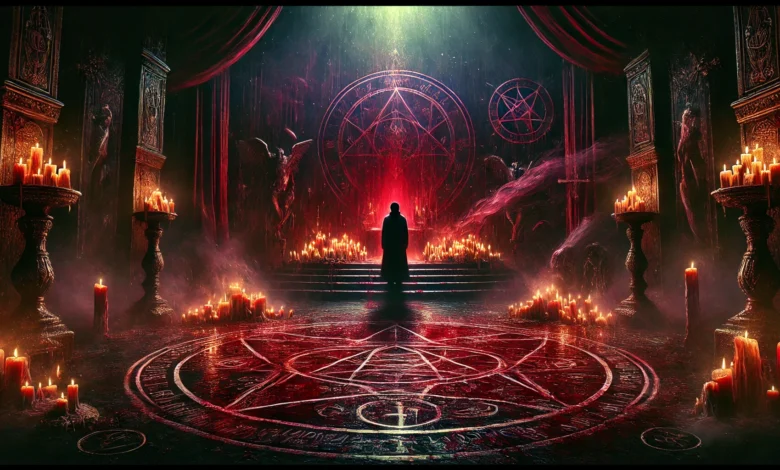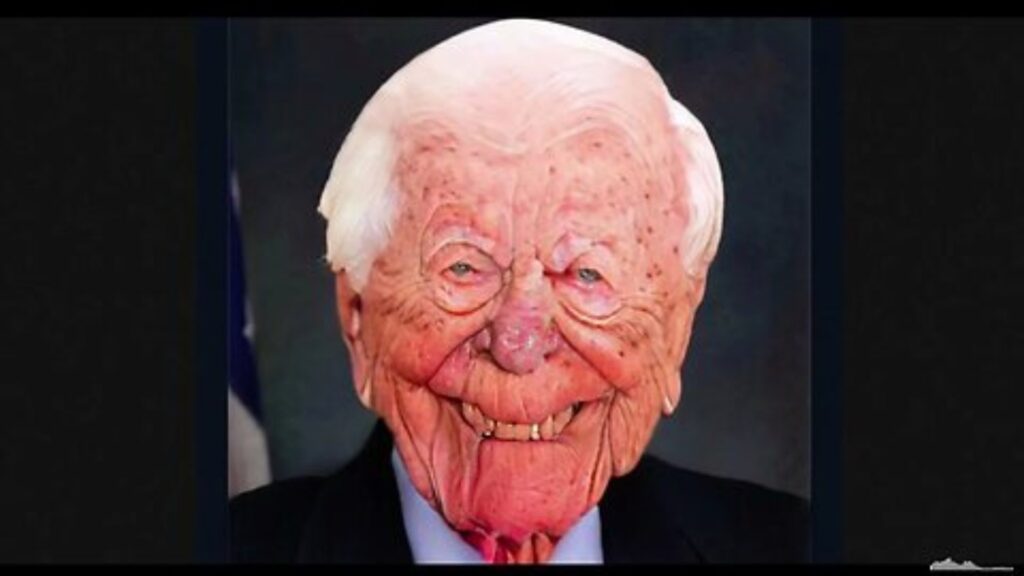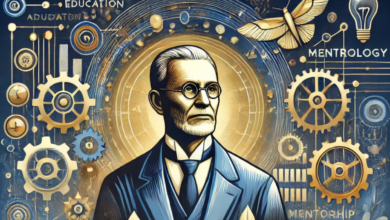Holden Bloodfeast A Tale of Dark Mysticism and Horror

Introduction
In the realm of horror fiction, certain names and titles stand out for their ability to disturb, captivate, and leave a lasting impression on their audiences. One such title, “Holden Bloodfeast,” represents a deep dive into the unsettling world of dark mysticism, gruesome rituals, and malevolent forces. Rooted in the themes of sacrifice, power, and the consequences of dabbling in the supernatural, the story of Bloodfeast brings together visceral horror with psychological terror, creating a chilling atmosphere that pulls readers into its dark embrace.
Whether “Holden” refers to a character, event, or cursed location, it is a name that evokes thoughts of eerie rituals, blood sacrifices, and unspeakable horrors lurking just beyond the veil of reality. This article aims to explore the origins, themes, and narrative elements of Bloodfeast, detailing its haunting allure and its cultural and literary significance.
The Origins of Holden Bloodfeast
Holden Blood feast, like many works of horror fiction, finds its roots in ancient legends, occult practices, and dark folklore. At its core, the tale intertwines elements of sacrificial rituals, forbidden knowledge, and a deep-seated fear of the supernatural. While the story of Holden Blood feast may not have a widely agreed-upon origin, it has evolved through the centuries as both a contemporary creation and a reflection of age-old fears.
The Role of Blood in Ritualistic Practices
Blood is a powerful symbol in many cultures, often associated with life, death, and the transfer of power. The concept of blood as a sacred or dangerous substance is a thread that runs through many mythologies, where it is used in rituals to invoke gods, offer sacrifices, or provide nourishment to otherworldly entities. In the case of Holden Bloodfeast, blood plays a pivotal role in the story, serving as both a literal and symbolic link between the human realm and the forces that dwell beyond it.
Occult and Mystical Influences
The idea of blood rituals is not new. Throughout history, various cultures have practiced ceremonies in which blood was shed for spiritual or magical purposes. The connection between blood and mystical power is explored in many occult traditions, such as those of ancient civilizations or secret societies. These rituals often involve invoking deities or supernatural beings, and those who participate are bound by the ritual to the forces they seek to summon or appease.
Holden Blood feast draws upon these occult traditions, incorporating elements of ancient rituals that promise power or immortality in exchange for a sacrifice. However, the story warns that such power comes with heavy consequences, often resulting in the loss of humanity or the unleashing of terrifying forces beyond one’s control.
Also read: Jared Kutz Death New Braunfels TX
The Storyline: A Descent into Madness
At its core, Holden Bloodfeast tells the story of a protagonist, typically named Holden, who becomes entangled in a ritualistic and horrific series of events that stem from a dark, ancient tradition. The narrative often begins with a seemingly innocent curiosity or search for knowledge, which spirals into an obsession with the Bloodfeast ritual itself.
The Discovery of the Bloodfeast Ritual
The story of Holden Blood feast often begins when Holden, a character perhaps seeking to uncover the truth behind a local legend or an ancient family secret, discovers an old manuscript, relic, or artifact that mentions the Bloodfeast. Intrigued by the promise of forbidden knowledge or the power to transcend mortality, Holden delves deeper into the history of the ritual.
The Bloodfeast, however, is not something that can be taken lightly. The closer Holden gets to uncovering the truth, the more he begins to notice the eerie and disturbing signs of the ritual’s influence—unexplained deaths, strange occurrences, and the overwhelming sense that something malevolent is watching him.
The Ritual and the Price of Power
As the story progresses, Holden eventually becomes involved in the ritual itself. The Bloodfeast requires the shedding of blood—often human blood—offered to a dark, ancient entity that feeds on life force. Participants in the ritual believe that by partaking in the bloodshed, they can gain power, immortality, or the ability to control the forces of nature. But as Holden soon learns, these promises come with a price that cannot be avoided.
The ritual itself is described in horrifying detail, with imagery of blood-soaked altars, chanting, and the rising of dark forces from beyond the physical realm. In many versions of the tale, Holden or other participants experience a sense of euphoria or power as the ritual progresses. However, this sense of invincibility is fleeting and often leads to the participants becoming enslaved to the very forces they sought to control.
The Unforeseen Consequences
The consequences of the Bloodfeast are dire. The power gained from the ritual is often short-lived, and those who partake are inevitably cursed. In Holden Bloodfeast, the protagonist soon finds himself haunted by the consequences of his actions. The forces he sought to control begin to exact their toll, and Holden realizes that there is no escaping the deadly chain of events set in motion by the Bloodfeast.
The horror intensifies as Holden grapples with the changes within himself—both physical and psychological. His connection to the dark entity grows stronger, and he begins to lose touch with reality, questioning his own identity and the nature of his existence.
The Central Theme of Blood: Power, Sacrifice, and Corruption
At the heart of Holden Blood feast is the symbolic role of blood. Blood represents not only life but also the cost of power. The Bloodfeast ritual is not merely a celebration of bloodshed but a reminder that any pursuit of power or immortality through unnatural means comes with a price.
Blood as a Symbol of Life and Death
In many cultures, blood is seen as a life force that connects all living things. It is both a sustainer and a destroyer. In Holden Bloodfeast, blood is central to the ritual, representing the sacrifices made to gain supernatural power. However, it is also a reminder of the inescapable truth that death is always lurking just beneath the surface of life.
In this context, the Bloodfeast serves as a metaphor for the human desire to transcend mortality and control forces beyond our comprehension. It speaks to the darker side of human nature—the temptation to overreach and the inevitable consequences of doing so.

The Corruption of the Soul
Another critical theme in Holden Blood feast is the corruption of the soul. As Holden delves deeper into the ritual and partakes in the Bloodfeast, he begins to lose pieces of his humanity. The supernatural forces that he sought to control become a parasite, feeding on his very essence.
The story explores the moral cost of engaging with such dark powers. Characters who partake in the ritual find that they are unable to return to their former lives, forever marked by the curse they have unleashed. This theme of corruption serves as a warning about the dangers of seeking power at any cost, whether through violence, sacrifice, or manipulation.
Psychological Horror: The Madness of Holden
Holden Bloodfeast is as much a psychological horror story as it is a tale of physical gore. The story delves deep into Holden’s psyche as he grapples with the consequences of his actions and the horrors he has unleashed. His descent into madness is not merely a result of the physical atrocities he witnesses or participates in but also the psychological toll of engaging with the supernatural.
The Blurring of Reality and Nightmare
As Holden becomes more entwined in the Bloodfeast ritual, his grip on reality begins to slip. He experiences horrifying visions, fragmented memories, and an overwhelming sense that the lines between the living and the dead are no longer clear. This blurring of reality and nightmare is a central aspect of the psychological horror in Holden Blood feast.
The audience is forced to question what is real and what is a product of Holden’s deteriorating mind. As the story progresses, the reader becomes as uncertain of Holden’s perception of reality as he is, adding to the sense of disorientation and dread.
Isolation and Paranoia
Another key element of the psychological horror in Holden Bloodfeast is the theme of isolation. As Holden delves deeper into the occult, he becomes increasingly estranged from the world around him. His relationships with others begin to deteriorate, and he finds himself unable to trust anyone, including himself.
Paranoia sets in as Holden becomes convinced that he is being watched by unseen forces. His isolation is compounded by the knowledge that he can no longer escape the ritual he has unleashed. This sense of being trapped, both physically and mentally, creates a suffocating atmosphere that permeates the entire narrative.
Themes of Guilt, Redemption, and Damnation
Holden Bloodfeast is ultimately a story about guilt, redemption, and damnation. The protagonist, Holden, is forced to confront the moral consequences of his actions as he realizes that there is no escape from the horrors he has unleashed.
The Search for Redemption
Throughout the story, Holden seeks redemption, hoping to undo the damage caused by his participation in the Bloodfeast ritual. However, redemption is elusive, and Holden finds that the more he tries to escape his past actions, the more entrenched he becomes in the world of darkness and terror.
The theme of redemption serves as a poignant reminder that some actions cannot be undone, and some debts cannot be paid. Holden’s quest for redemption ultimately leads him deeper into despair, highlighting the futility of seeking absolution in the face of overwhelming supernatural forces.
The Path to Damnation
In many versions of Holden Bloodfeast, the protagonist is ultimately doomed to damnation. The forces he has invoked are not easily banished, and the consequences of his actions are inescapable. Holden’s fate is sealed, and the blood he has spilled has marked him for eternal suffering.
This theme of damnation is central to the horror of Holden Blood feast. It is a reminder that certain acts, no matter how small, can set in motion a chain of events that leads to irreversible consequences. It underscores the danger of seeking forbidden knowledge and power, as well as the impossibility of escaping the karmic debt incurred by such actions.
Cultural and Literary Significance
While Holden Blood feast remains a relatively obscure tale in the horror genre, its themes and narrative elements are deeply rooted in the traditions of gothic fiction, supernatural horror, and psychological terror. The story shares commonalities with other works of horror that explore the consequences of meddling with dark forces, such as H.P. Lovecraft’s tales of forbidden knowledge and Edgar Allan Poe’s explorations of madness.
Holden Bloodfeast in the Context of Horror Fiction
Holden Blood feast stands as a significant work within the horror genre, contributing to the exploration of blood rituals, the consequences of power, and the psychological deterioration of those who dare to engage with the supernatural. It draws on established horror tropes while adding a unique layer of psychological complexity and emotional depth.
The story also serves as a cautionary tale, warning readers about the dangers of seeking knowledge or power at the expense of their humanity. This thematic depth, combined with the visceral horror of the Bloodfeast itself, ensures that Holden Blood feast continues to resonate with audiences who seek stories that explore the darkest corners of human nature.
Conclusion
Holden Bloodfeast is a tale that blends supernatural horror with psychological terror, creating a narrative that lingers long after the final page is turned. Its exploration of blood rituals, power, and the inevitable consequences of dabbling in the unknown makes it a memorable and chilling story. Through its themes of guilt, redemption, and damnation, it reminds us that some forces are not meant to be controlled, and that the price of power is often far greater than we can imagine.





